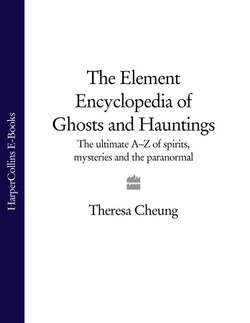Читать книгу The Element Encyclopedia of Ghosts and Hauntings: The Complete A–Z for the Entire Magical World - Theresa Cheung, Theresa Cheung - Страница 157
DEMONOLOGY
ОглавлениеThe study of demons or malevolent spirits and their powers, attributes and derivations. Demons were thought to be extremely evil and extremely clever, masters in the art of persuasion. Humans had to be constantly on their guard against them. In 1580 philosopher Jean Bodin claimed that:
It is certain that the devils have a profound knowledge of all things. No theologian can interpret the Holy Scriptures better than they can; no lawyer has a more detailed knowledge of testaments, contracts and actions; no physician or philosopher can better understand the composition of the human body, and the virtues of the heavens, the stars, birds and fishes, trees and herbs, metals and stones.
The hierarchy of demons was much discussed among theological experts in the last centuries. According to Alphonse de Spina (1467) there were ten types of demon:
Fates that can change destiny.
Poltergeists that cause mischief.
Incubi and succubi – demons who stimulate lust and perversion.
Hordes – demons that bring conflict.
Familiars that assist witches.
Nightmares that disturb sleep.
Demons formed from human semen.
Disguised demons.
Demons that trouble the saintly.
Demons that instigate witchcraft.
